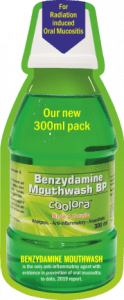Menu

This blog is based on the article ‘Do we have an answer to bradykinin storm?’ that appeared in Dental Tribune, South Asia.
Many articles have been covered on the role of vitamin D in the management and prevention of the novel coronavirus disease and SARS-CoV-2 infection. The interest in vitamin D has peaked ever since the recent bradykinin hypothesis answered the questions that were left unanswered by the cytokine storm hypothesis.
Moreover, the bradykinin hypothesis also suggested that vitamin D therapy has the potential to control the bradykinin storm. However, there was a lack of clinical trials to back this study.
This article focuses on the results that were achieved through a preliminary trial that showcases the role of vitamin D therapy in preventing complications in COVID-19 patients that are hospitalized.
What We Know So Far
COVID-19 patients who are severely sick require immediate hospital admission. Among hospitalized patients, almost 20% of them are likely to suffer from Acute Respiratory Distress Syndrome (ARDS). These patients will require admission to the intensive care unit (ICU).
Various studies have proven that the activation of the vitamin D receptor (VDR) signaling pathway could cause favorable effects in (ARDS) by:
Also, the newly prepared bradykinin hypothesis suggested the implementation of vitamin D therapy for treating COVID. The biological reason for this proposal is because vitamin D prevents bradykinin accumulation and maintains the Renin-Angiotensin System (RAS).
According to the bradykinin hypothesis, SARS-CoV-2 causes dysfunction to the renin-angiotensin system through its reaction with the Angiotensin-Converting Enzyme 2 (ACE2) receptor. This reaction results in the amassing of bradykinin, making the blood vessels leaky. The hypothesis also states that when SARS-CoV-2 is less expressed in certain organs, it can upregulate ACE2 expression. This increase in the number of receptors can cause issues in various organs. For instance, it can lead to the breakdown of the blood-brain-barrier and cause leakage of immune cells and fluid into the lungs.
The Role of Vitamin D in COVID Management
To test the link between vitamin D receptor activation and the seriousness of COVID or ARDS, a team of researchers conducted a study to assess the effectiveness of Calcifediol (25-hydroxyvitamin D3 or 25OHD) in the early stages of COVID infection in patients that were hospitalized. The native vitamin D3 form for Calcifediol is Cholecalciferol. However, the study used Calcifediol since it has proven to rapidly increase serum 25OHD concentration.
This preliminary study evaluated if such treatment can minimize the need for ICU admission and reduce the risk of death.
The research team divided 76 patients into Calcifediol untreated (26) and treated (50) groups. Both these groups had similar clinical biomarkers of disease severity (lymphocyte count, C-reactive protein, ferritin, lactate dehydrogenase, oxygen levels, and D-dimer) and baseline characteristics (comorbidities, sex, age). However, the untreated group displayed a higher prevalence of hypertension (57.69%), compared to the treated group (24.19%).
The Results of the Study
50 patients were treated with Calcifediol, out of which the only (2%) required ICU admission. None died, and all were discharged, without complications.
The results for the treated group of 50 patients:
The results for the untreated group of 26 patients:
Conclusion
It is important to note that this study has certain limitations. However, it demonstrated that Calcifediol can significantly lower the need for ICU admission. Calcifediol also seems to reduce the severity of the disease. In conclusion, controlled and larger sample size trials need to be conducted for a definitive answer.
Source:


| PRODUCTS | QTY | PRICE | VALUE in INR |
|---|
| PRODUCTS | QTY | PRICE | VALUE in INR |
|---|